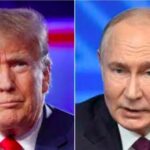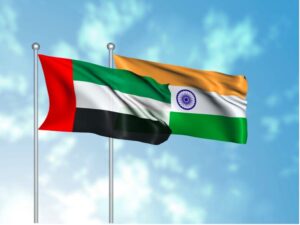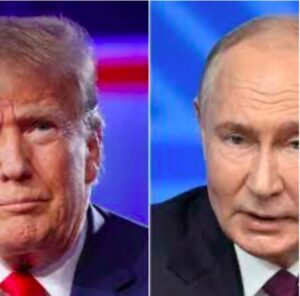By Bedouin Report
Economic Ebbs And Flows Of The Invisible Hand
Government intervention in the economy, far from being a modern innovation, has long been employed to counteract the inefficiencies of unregulated markets. In a textbook free-market system, prices and allocations are determined by the invisible hand of supply and demand. Yet, as Adam Smith himself acknowledged, markets are not infallible. They fail, sometimes catastrophically. In such cases, governments step in to correct what economists call market failures: systemic inefficiencies that prevent the optimal allocation of resources or the provision of essential public goods.¹ These interventions, while often necessary, introduce political considerations into economic activity, with effects that ripple well beyond national borders.
During the Trump administration, such interventions took the form of sweeping tariffs and protectionist trade policies. Under the rhetoric of economic nationalism and American self-reliance, the U.S. levied tariffs on billions of dollars’ worth of imports, targeting adversaries and allies alike. While framed as a tool for domestic revival, these measures effectively reconfigured the architecture of global trade, altering relationships not just between Washington and Beijing, but between Washington and Abu Dhabi, Riyadh, Brussels, and beyond. In this context, Trump’s tariffs were not merely economic lever. They became instruments of geopolitical signaling, reshaping alliances and economic dependencies around the world.
Government Intervention and Welfare Considerations
To assess the impact of tariffs as a form of government intervention, it is first necessary to revisit the intellectual foundations of welfare economics. At its core, welfare economics is concerned with actions that improve societal well-being, measured through standards of living, access to public goods, and overall economic efficiency.² Governments traditionally intervene when the first fundamental theorem of welfare economics fails, namely, when free markets do not lead to Pareto-efficient outcomes.³ This may occur due to monopolistic behavior, externalities such as pollution, or the under-provision of public goods like infrastructure, healthcare, or education.
The second fundamental theorem allows for a theoretical reallocation of resources via lump-sum transfers, enabling Pareto-efficient outcomes to be achieved under different distributions of wealth.⁴ Yet in practice, such transfers are rarely politically viable. Instead, governments rely on taxation, subsidies, tariffs, and regulation to approximate socially desirable outcomes. These second-best interventions, while not perfectly efficient, may still yield net welfare gains, particularly in cases where market forces alone would exacerbate inequality or insecurity.⁵
The Tariff Regime Under Trump
It is within this framework that Trump’s tariff regime must be evaluated. The imposition of tariffs is, at face value, an attempt to protect American industries from foreign competition and rebalance trade deficits. However, the broader implications are geopolitical. By targeting strategic sectors, such as steel, aluminum, and high-tech goods, the United States is sending a clear message: economic policy will no longer be decoupled from foreign policy. This recalibration will yield consequences not only for global supply chains but for regional partners caught in the crossfire of U.S. economic realignment.
For nations in the Middle East, particularly those pursuing economic diversification like the United Arab Emirates and Saudi Arabia, these tariffs introduce both risks and opportunities. On one hand, the increased cost of U.S. exports and the volatility in global markets poses challenges for import-reliant Gulf economies. On the other hand, the erosion of U.S.–China trade ties opens new avenues for bilateral and trilateral economic cooperation between the Gulf, China, and emerging Asian markets.⁶ The UAE, already positioning itself as a logistics and re-export hub, leverages its neutrality and connectivity to fill in logistical gaps created by the dislocation of U.S.-centered supply routes.⁷
Welfare Tradeoffs and Global Consequences
Whether the tariffs improve welfare within the United States remains hotly contested. While some industries may experience temporary gains, consumers bear the burden of higher prices, while retaliatory tariffs disrupt export markets for American farmers and manufacturers.⁸ The theoretical justification of improving domestic welfare via protectionist policy is undermined by real-world inefficiencies and distributional inequities.
Moreover, the tariffs illustrate the risks of government intervention when filtered through a political lens. Ideally, a social planner seeks to maximize welfare impartially, but political decision-making is constrained by lobbying, electoral incentives, and ideological commitments.⁹ As a result, what emerges is often a suboptimal policy that is Pareto-improving in rhetoric, but politically constrained in reality. This divergence between theoretical efficiency and practical implementation is a well-documented critique within public choice theory.¹⁰
From an international standpoint, the tariffs catalyze a recalibration of trade flows. The Middle East Region economies, already undergoing transformation through visions like Saudi Arabia’s Vision 2030 and the UAE’s strategic shift toward non-oil sectors, have been growing and adapting to the rapidly changing global economic landscape by deepening economic relations with Asia and Africa.¹¹ Simultaneously, the decline of multilateral trade forums and the fracturing of institutions like the World Trade Organization underscore a return to transactionalism in global commerce. Tariffs, once considered crude tools of economic warfare, are slated to become normalized as expressions of national policy in what seemed to be an increasingly multipolar world. Yet, new economic realities are testing different thresholds.
A Shift Toward Economic Nationalism And Managed Trade
Trump’s tariffs are not an aberration, but a manifestation of a broader philosophical shift toward economic nationalism and managed trade. As government interventions, they embody the tension between political imperatives and economic theory, disrupting long-held assumptions about the efficacy of the market and the neutrality of state action. While their domestic impact remains debated, their global implications are undeniable. From Washington to Abu Dhabi, the tariffs are reshaping alliances, redirecting supply chains, and testing the resilience of globalization itself.
In a world where the lines between economic and geopolitical strategies continue to blur, Trump’s tariffs offer a case study in how state interventions, whether efficient or not, can echo across continents.
Works Cited
- Wittman, Donald. Why Democracies Produce Efficient Results. Journal of Political Economy 97 (1989): 1395–1426.
- Besley, Timothy. On the Public Choice Critique of Welfare Economics. Forthcoming in Public Choice, 2002.
- Arrow, Kenneth. Social Choice and Individual Values, 2nd ed. New York: John Wiley, 1963.
- Atkinson, Anthony B., and Joseph Stiglitz. Lectures on Public Economics. New York: McGraw Hill, 1980.
- Besley, Timothy, and Stephen Coate. “Sources of Inefficiency in a Representative Democracy: A Dynamic Analysis.” American Economic Review 88, no. 1 (1998): 139–156.
- Biais, Bruno, and Enrico Perotti. “Machiavellian Underpricing.” American Economic Review (forthcoming, 2002).
- Buchanan, James M., and Gordon Tullock. The Calculus of Consent: Logical Foundations of Constitutional Democracy. Ann Arbor: University of Michigan Press, 1962.
- Brennan, Geoffrey, and James M. Buchanan. The Reason of Rules: Constitutional Political Economy. Cambridge: Cambridge University Press, 1985.
- Besley, Timothy, and Stephen Coate. “Lobbying and Welfare in a Representative Democracy.” Review of Economic Studies 88 (1998): 139–180.
- Coate, Stephen. “On the Form of Transfers of Special Interests.” Journal of Political Economy (1995): 11–35.
- Besley, Timothy. “An Economic Model of Representative Democracy.” Quarterly Journal of Economics 112 (1997): 85–114.










More Stories
When The Bench Crosses The Border